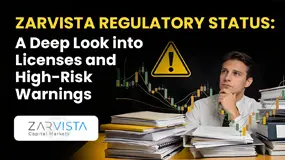PU Prime Launches “The Grind” to Empower Traders
Discover PU Prime’s new campaign, “The Grind,” and learn how trading discipline builds long-term success. Watch and start your trading journey today!
简体中文
繁體中文
English
Pусский
日本語
ภาษาไทย
Tiếng Việt
Bahasa Indonesia
Español
हिन्दी
Filippiiniläinen
Français
Deutsch
Português
Türkçe
한국어
العربية
Abstract:The Philippines tightens FX rules with new penalties of up to $17,130 per violation, enhancing transparency and ensuring timely financial reporting.

The Bangko Sentral ng Pilipinas (BSP) has made significant changes to its foreign exchange (FX) rules, a step that emphasizes its will to maintain a strong financial system in the Philippines. These measures, which improve openness and support price stability, show the central bank's will to fulfill its responsibility.
One of the key changes is the substantial increase in financial penalties for FX transaction infractions. Under the new guidelines, each infraction will carry a maximum penalty of PHP1 million (about $17,130). This significant rise in fines is a clear indication of the BSP's determination to deter non-compliance and ensure adherence to established norms.
Apart from transactional fines, the BSP has established a maximum penalty of PHP100,000 per calendar day for ongoing infractions. This penalty targets continuous violations and highlights the need for financial institutions to report quickly and correctly.
The BSP defines non-compliant reporting under its Manual of Operations of Foreign Exchange Transactions.

Errors and delayed or unsubmitted reports will now be characterized explicitly as violations, giving financial institutions unambiguous direction. This action is anticipated to improve the quality and timeliness of the reports sent to the BSP, therefore supporting more efficient policy studies and economic monitoring by helping to create a benchmark for these aspects.
The regulations also specify how financial institutions should be notified of infractions and fines. Additionally, the procedure for appealing or seeking review of these fines is stated, providing a methodical strategy for handling conflicts.
With a transitional period until December 31, 2024, these new rules will become active 15 banking days after their release on July 17, 2024. The BSP expects new rules to result in better reporting, helping the more extensive financial system.
The BSP's comment underlined how these developments will help the central bank to provide more accurate reports for policy research and more successfully monitor the financial system and economy.
1. What is the new maximum penalty for foreign exchange transaction infractions under the BSP's updated rules?
2. How does the BSP handle ongoing infractions under the new FX rules?
3. When will the new FX regulations take effect, and is there a transitional period?
Stay informed about the latest updates from the Bangko Sentral ng Pilipinas and other critical financial news by visiting the WikiFX News Page.

Disclaimer:
The views in this article only represent the author's personal views, and do not constitute investment advice on this platform. This platform does not guarantee the accuracy, completeness and timeliness of the information in the article, and will not be liable for any loss caused by the use of or reliance on the information in the article.

Discover PU Prime’s new campaign, “The Grind,” and learn how trading discipline builds long-term success. Watch and start your trading journey today!

IG boosts FCA compliance by integrating Adclear’s AI tools. Learn how automation accelerates marketing approvals and ensures regulatory accuracy.

A close look at ZarVista's regulatory status shows major red flags that mark it as a high-risk broker for traders. This analysis goes beyond the company's marketing materials to examine the real substance of its licenses, business structure, and operating history. The main issues we will explore include its dependence on weak offshore regulation, a large number of serious user complaints, and worrying details about its corporate identity. It is also important to note that ZarVista previously operated under the name Zara FX, a detail that provides important background to its history. This article aims to deliver a complete, evidence-based breakdown of the ZarVista license framework and its real-world effects, helping traders understand the serious risks involved before investing.

When traders think about choosing a new broker, two main questions come up: Is ZarVista safe or a scam? And what are the common ZarVista complaints? These questions get to the heart of what matters most—keeping your capital safe. This article gives you a detailed look at ZarVista's reputation using public information, government records, and real experiences from people who used their services. Our research starts with an important fact that shapes this whole review. WikiFX, a website that checks brokers independently, gives ZarVista a trust score of only 2.07 out of 10. This very low rating comes with a clear warning: "Low score, please stay away!" The main reason for this low score is the large number of user complaints. This finding shows that ZarVista might be risky to use. To get the complete picture, we will look at the broker's government approval status, examine the specific complaints from users, check any positive reviews to be fair, and give you a final answer based on fact
